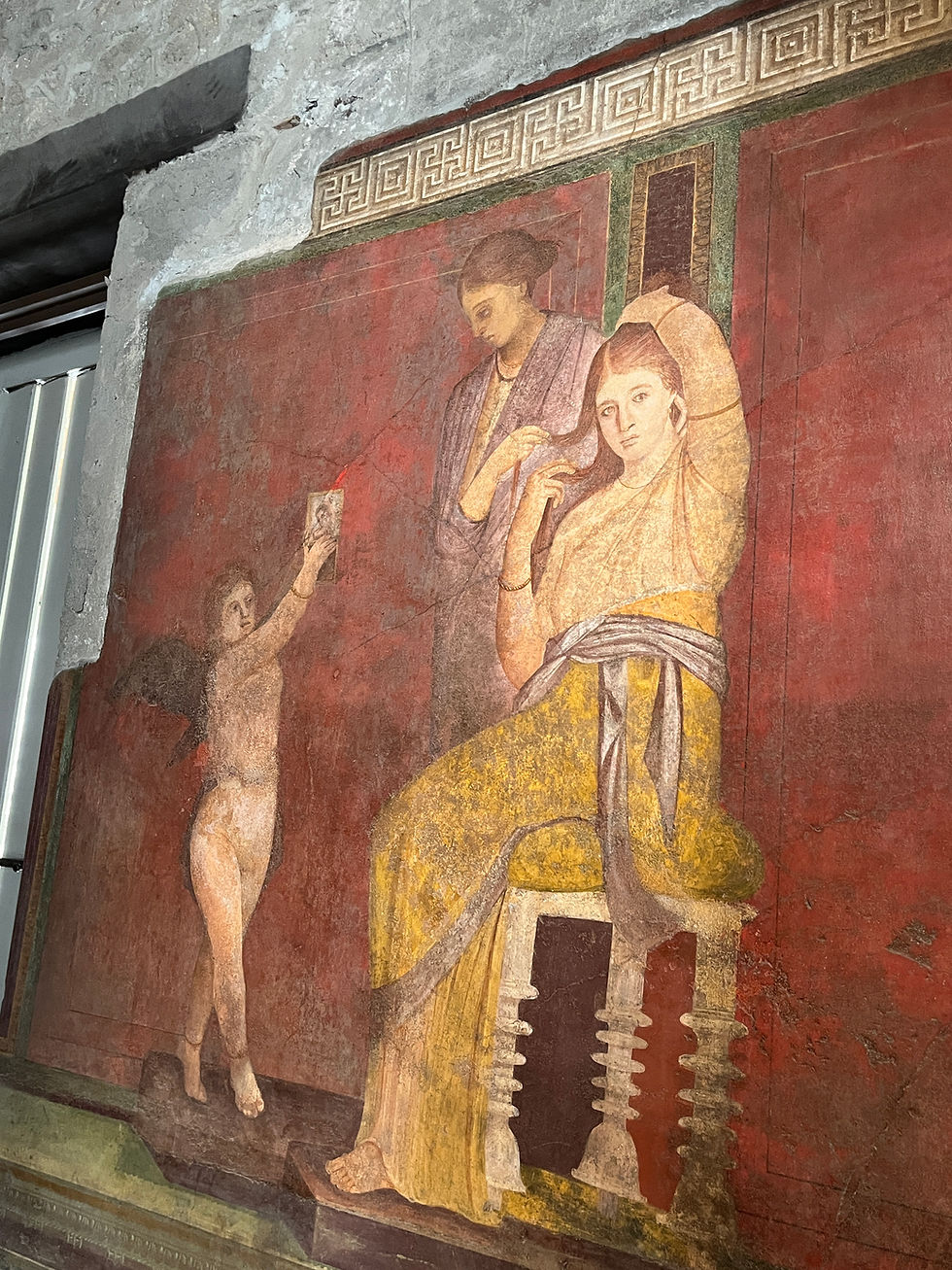Lessons from sloths
- Sandy Haney
- May 16, 2024
- 5 min read
While at the zoo with my daughter and her friends, we saw some sloths hanging around the trees. To no one’s surprise, the sloths weren’t moving, and the informational signs told us that when the sloths do move, they do so slowly to conserve energy. As basic research reminds us, sloths move slowly, sleep a lot, and aren’t very active. Perhaps that’s why people often associate sloth with slowness and laziness: if you’re slothful, you’re lazy.
Staring at the sloths was one moment in an animal-filled zoo day. But since I’m a scholar who loves to think, ponder, and learn, even a seemingly insignificant event like seeing the sloths can get my brain buzzing. Our zoo trip was no exception, particularly since I used to teach a class that included material on “sloth” in its non-animal meaning.
In Christian tradition, "sloth" is often listed as one of the seven deadly vices (or seven deadly sins). Unlike the animal, however, the vice of sloth encompasses two sides of a coin: one side is overly lazy, the other side is overly busy. Sloth – as a way of living – fits both the couch potato and the workaholic, the lazy person and the person charging full speed ahead. Slothfulness isn’t just hanging out in the hammock like the sloths at the zoo. Rather, the vice of sloth fits the imaginary sloth Flash from the animated movie Zootopia. Flash the Sloth is incredibly, agonizingly, hilariously slow when he works at the DMV. When he’s driving, however, he’s breaking all the speed limits and going way too fast! The imaginary sloth Flash actually embodies the vice of sloth quite well, far better than those at the zoo. Sloth is a slowness and a busy-ness, and often both at the same time.
There’s much I could say about sloth, but for now, I’ll share one way to think about slothfulness: wrong-caring. We're caring about the wrong things or caring about things in the wrong way. When we’re slothful, we’re giving too much attention to the wrong things and too little attention to the right things. For some people, that might be too much attention to Netflix or Instagram and too little attention to work that needs to be done; for others, it may be too much attention to the job and too little attention to the need to rest. Still for others it might be prioritizing entertainment activities over fulfilling family responsibilities, while others might fail to care for their own needs because they’re too busy doing things for others. In other words, being too busy – particularly busy with the things that aren’t important or necessary – and being too lazy – at the expense of real relationships, fulfilling work, and following through on commitments – both lead to exhaustion, despair, dissatisfaction, and restlessness.
Sloth acts much like (and often in accord with) depression. It takes away our joy, makes us feel purpose-less and discontent, and contributes to our anxieties. We eventually stop caring on a deep level. Perhaps that's one reason the psalmist cries out to God to strengthen him when he faces sloth. In Psalm 119, the psalmist proclaims, "My soul melts away for sorrow; strengthen me according to your word" (NRSV). The word translated "sorrow" is, in the Greek translations, "acedia," or sloth. Sloth is soul-melting. The psalmist asks God to help him focus on what matters – God's word – and to flee "false ways" and "vanities." As we know, that's easier said than done. The psalmist seeks God's help because overcoming sloth can be difficult and hard to do on our own.
In the Christian traditions about sloth, sloth is one of the most serious vices because it has such a powerful impact on our lives. When we're slothful, we miss out on all the good things God has for us, whether because we're too busy or too restless to notice and appreciate them. We begin to be apathetic toward all that really matters in life, including God. We don't want to do the work of learning to care about the right things in the right way. We become content with a dull, boring, and unsatisfactory life rather than embrace the good life and good gifts that God offers us.
Of course, we all have days when we’re “lazy” or “busy." That doesn’t mean we’re always battling sloth. We’re human, after all, and we all have those days! However, if the vice of sloth is plaguing us, we’re looking at days, weeks, months, maybe even years, of habitual patterns of being overly busy or too lazy, of not filling our life with the right things. We’re looking at patterns of being unable to focus on what matters or of being too focused on one thing at the expense of other things. When we lose sight of what’s truly important, of our values and goals, we fall into sloth rather easily. We stop striving for our goals, or we let other things fill our calendar so that we have no time for what we value most. We have a sense that things aren’t right, that all our work is leading nowhere, and/or that we are letting life pass us by. Often, we don’t know how to make it better, at least not on our own.
Just like a visit to the zoo lets us see sloths and observe them, there may be some ways you can examine sloth in your own life. You could consider doing a study on sloth or going to a lecture so that you learn more about sloth and understand if and how it's affecting you. Alternatively, or in addition, you could check out life coaching. Life coaching offers a chance to look at our own lives and assess ourselves. If you’re struggling with sloth (as I sometimes have), life coaching provides space to think about your values, goals, and dreams and to decide if the life you’re living aligns with those. Coaching gives you opportunity to work on your priorities so that you spend your time on “the right things,” whether that’s work, rest, family, or something else. Indeed, life coaching lets you figure out what those “right things” are – for you, not for anyone else. Whether you need to slow down or speed up, change direction or shift lanes, get back on track or get a new map to a different place, life coaching provides space for you to find help when the journey against sloth seems difficult or overwhelming. A coach will walk with you, cheer for you, and encourage you. And if you coach with me and are interested in spiritual formation, I can help you find resources about battling in Scripture and in the teachings of other Christians who have shared the same struggles. After all, those sloths lying together in their hammocks at the zoo have another lesson to teach us: whatever the speed, the journey is better when someone shares it with us.








Comments